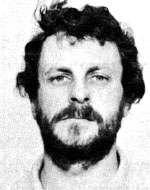Cooper, Barry
Son of Robert, of blessed memory, was born on the 9th of Iyar, 5639 (28.4.1939) in England. When he was only a few months old. During World War II, he and his family were evacuated to the Hartford area. When he was seven he returned with his family to London and for five years was educated in a boarding school. Influenced by the director of the boarding school who was a famous cricket player, this game was popular with Barry and eventually excelled in it. He completed eleven years of study in London, worked various jobs and then enlisted in the British Royal Air Force and served as an airborne operator. After five years of service in the Israel Air Force, he was discharged from the service and worked in various jobs. From 1965 to 1973 he was a taxi driver in London. In 1973 Barry decided to immigrate to Israel with his wife. They settled in Kibbutz Neveh Yam, where he worked in the chicken coop and later moved to Kibbutz Beit HaEmek. Barry loved music, listened to it a lot, and during leisure time, he also engaged in musical activity and imparting love of music to others. He liked drawing and engaged in various hobbies. The kibbutz was well integrated into the music life and was a popular favorite of the kibbutz members because of its integrity and fairness, and its easy nature and willingness to help others. He loved the kibbutz life and saw it as the realization of his aspirations as a person and a Jew. Bari was drafted into the IDF in early February 1978. After completing his short training period and becoming a rifleman, he was discharged from the regular army and transferred to reserve forces, and was stationed in a reserve unit that was appointed to the regional defense force. 3/3/1979 Bari fell during his service. He was brought to eternal rest in the cemetery in Kibbutz Beit HaEmek. He left behind a wife, four sons, a mother and a brother. In a letter of condolence to the bereaved family, his commander wrote: “Barry fell while serving in the Israel Defense Forces while guarding the Israeli coastline in the sector opposite your home, a house where you decided to live when you came to Israel from Britain.”
